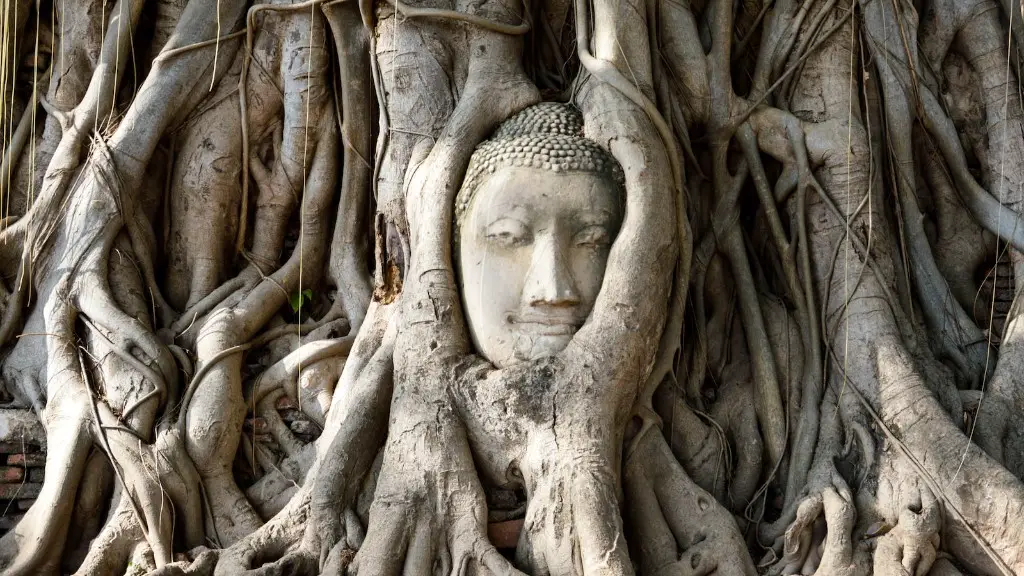The Origin of Judaism
Judaism is one of the world’s oldest religions, with roots tracing back to the Middle East in ancient times. It is the foundation of both Christianity and Islam and is based on the teachings of the Torah. The Jewish faith teaches that there is only one all-powerful God, who created the universe and revealed himself to Moses, the Jewish people’s first leader. The Ten Commandments, written by Moses, are fundamental tenets of the faith, which is focused on strong family values, community and charity.
Reasons why People Convert to Judaism
There are many reasons why people convert to Judaism. Some may always have been interested in the faith, while others may have had no prior knowledge of it. One of the most common reasons is marriage – if one partner is Jewish, it’s possible to become Jewish. Others find inspiration and spiritual fulfillment in the Jewish culture and become converted for personal reasons. Folks may convert as a way of honoring heritage, as many Jews are descended from Armenians, Persians, Ethiopians and more.
The Process of Converting to Judaism
Conversion to Judaism isn’t just a matter of a few simple steps – it’s a significant commitment that requires effort and dedication. To become a Jew, one must study Jewish law and practice. An aspiring convert must be guided through the process by an experienced Jewish authority, and their conversion must be approved by a beit din, a panel of three qualified rabbis. In some cases, a conversion may even require a full immersion in a mikveh, a ritual baptism pool.
Finding Spiritual Fulfillment & Identity
Some converts are motivated by the desire to find spiritual fulfillment or identify with their ancestral heritage. Judaism emphasizes celebrating life’s joys, following ethical and moral principles, and participating in ritual ceremonies to mark key moments in one’s life. Jewish customs promote personal growth and the values of humility, justice and love. Judaism may offer those who are looking to explore the spiritual world or connect with their roots a meaningful and satisfying way to do so.
The Benefits of Converting to Judaism
Converting to Judaism can be a life-changing experience for many people. It can provide a sense of purpose, community and meaning. The faithful are encouraged to become involved in tikkun olam, the belief that by working together, Jews can help to repair the world. Converting can also bring a sense of belonging to a faith, culture and people with a rich and varied history.
The Challenges of Converting to Judaism
Converting to Judaism isn’t an easy decision, and there are some challenges to consider. It’s a long and difficult journey that may require lots of time and hard work. An interested person must be willing to immerse themselves in the culture and study the customs, laws and beliefs of the faith. Additionally, Jewish values may differ from one’s upbringing, and it can often be a scary decision to adopt a new set of beliefs.
The Impact of Diet & Lifestyle Changes
Judaism emphasizes food laws that may require followers to make significant lifestyle changes. These laws may require a Jewish person to adjust their diet, abstaining from certain foods or observing certain holidays. These restrictions can take some time to get used to, and they may cut off access to foods one may have once enjoyed.
The Influence of the Community & Culture
It’s important to be aware of the positive impact that being part of a Jewish community can have. For example, some converts might find strength and comfort in attending Jewish services and participating in Jewish prayer. The culture also emphasizes intellectual education and critical thinking, promoting intellectual curiosity and the pursuit of knowledge.
Striving for Acceptance & Inclusion
All Jewish convert faces the challenge of striving for acceptance. The conversion process can often be intimidating, as an aspiring convert may feel vulnerable in front of a judging panel. But upon conversion, the newly inducted Jew often finds acceptance in their new community and culture and is welcomed with open arms.
Exploring Jewish Traditions & Holidays
Jewish traditions, holidays and practices provide converts with a unique and meaningful way to connect with their faith. Special holidays are celebrated with family and friends, traditional recipes are cooked and shared, and various ceremonies are observed. These rituals are often associated with deep meaning, allowing converts to form a deeper connection with their faith.
Interpreting Jewish Texts & Contemporary Issues
Studying Jewish texts is a cornerstone of the Jewish faith, and it’s important for converts to be familiar with religious teachings, as well as understand contemporary issues relevant to the faith. This can be done through reading, classes, speaking to experts, and even through discussions with fellow Jews. It can sometimes be a difficult and challenging process, but it can be a rewarding and enlightening journey.
Fostering a Sense of Friendship & Belonging
Perhaps one of the most important aspects of converting to Judaism is fostering a sense of connection and community. Jews around the world often share a close bond and friendship with one another, and many convert find comfort in being surrounded by a welcoming, supportive and loving community. Developing and nurturing relationships with fellow Jews can help convert feel like they truly belong and are part of something bigger.
Adapting & Incorporating Halacha into Everyday Life
Jewish law is known as ‘halacha’, and proper observance requires study and discipline. If a convert wishes to practice as a Jew, they must familiarize themselves with the halacha and incorporate it into their everyday life. While this can be challenging, it’s also an opportunity to deepen one’s understanding of the Jewish faith and its distinct values.



